Engaging Difference, Guest Presentation, June 1
Date: Monday, June 1
Time: 9:00 – 10:20 a.m.
Location: Mitchell Auditorium
Student Engagement and Inclusive Campus Environments from Summer Faculty Institute 2015
Welcoming remarks, Carol Henderson, Vice Provost for Diversity
Introduction of keynote speaker, Cheryl Richardson, Assistant Director, Center for Teaching and Assessment of Learning
 Shaun Harper, University of Pennsylvania
Shaun Harper, University of Pennsylvania
Shaun R. Harper is on the faculty in the Graduate School of Education, Africana Studies, and Gender Studies at the University of Pennsylvania, where he also serves as Executive Director of the Center for the Study of Race and Equity in Education. His research examines race and gender in education and social contexts, equity trends and racial climates on college campuses, Black and Latino male student success in high school and higher education, and college student engagement. Professor Harper has published 12 books and over 90 peer-reviewed journal articles and other academic publications. He has received over $11.7 million in research grants. Dr. Harper has been interviewed on CNN, ESPN, and NPR and featured or quoted in The New York Times, Los Angeles Times, Wall Street Journal, and over 400 other media outlets. He received the 2014 American Educational Research Association Relating Research to Practice Award and the 2008 Association for the Study of Higher Education Early Career Award. He earned his bachelor’s degree from Albany State, a historically Black University in Georgia, and his Ph.D. from Indiana University.
Critical Thinking, June 1
Date: Monday, June 1
Time: 10:40 – 12:00 noon
Location: Mitchell Auditorium
What is the Mental Tattoo for Your Course? from Summer Faculty Institute 2015
 Beth Morling, Psychological & Brain Sciences
Beth Morling, Psychological & Brain Sciences
Beth Morling earned her B.A. in Psychology from Carleton College and the Ph.D. in social and personality psychology from the University of Massachusetts-Amherst. She has taught at liberal arts colleges (Union College and Muhlenberg College) before teaching at the University of Delaware. Throughout her career, she has focused on both classroom teaching and cultural psychology research. She regularly teaches courses on research methods, cultural psychology, the self-concept, and the teaching of psychology, and has published a textbook in research methods. Beth’s most recent scholarly research has focused on how culture shapes human motivation and social life, as well as where cultural differences are located and measured—whether within the person, or in cultural products such as media, texts, or buildings. She is a Fulbright scholar, having lectured and conducted research in Kyoto, Japan from 2010-11. She is a Delaware State Professor of the Year, an award from CASE and the Carnegie Foundation for the Advancement of Teaching.
Digital Humanities, Guest Presentation, June 1
Date: Monday, June 1
Time: 1:00 – 3:00 p.m.
Location: Gore Hall 104
Public Humanities Roundtable from Summer Faculty Institute 2015
Jesse Stommel SlideShare Presentation: New-form Scholarship and the Public digital humanities
This year’s University of Delaware Summer Faculty Institute features a keynote roundtable, “Public Humanities 2.0: Cultural Heritage Research-and-Teaching in a Digital Age,” that will be an opportunity to focus attention on the materiality of digital media and the transformations of both scholarly communication and classroom practices made possible by digital media.
 Michelle Moravec, Rosemont College
Michelle Moravec, Rosemont College
Michelle Moravec is an associate professor of history at Rosemont College in Philadelphia, PA. After receiving her Ph.D. in US history from the University of California Los Angeles, she worked in a range of alt-ac positions including women’s leadership and directing the Women’s Center at William Paterson University. She is a frequent digital history workshop presenter. Her writings about the field have appeared in The Chronicle of Higher Education, Inside Higher Education, the University of Venus, and Women in Higher Education and at her monthly column for the Mid-Atlantic Research Center for the Humanities. Her current project, the Politics of Women’s Culture, is being written in public on the web and has been funded by the Getty Research Institute, the Schlesinger Library, and Barnard College Library.Her completed digital history projects include Gender in the History of Woman Suffrage, Unghosting Apparitional Lesbian History, and Visualizing Schneemann. She also collaborates with students at Rosemont College and Villanova University on two additional digital history project, Till I’ve Done All that I Can: Alma A Clarke’s Great War, and Chapel of Delight: the Chapel of the Immaculate Conception at Rosemont College.
 Jesse Stommel, University of Wisconsin
Jesse Stommel, University of Wisconsin
Jesse Stommel is Assistant Professor of Digital Humanities in the Department of Liberal Arts and Applied Studies at University of Wisconsin-Madison. He is also Founder and Director of Hybrid Pedagogy: a digital journal of learning, teaching, and technology. Jesse is an advocate for lifelong learning and the public digital humanities. He teaches courses about digital pedagogy, digital storytelling, horror film, and Shakespeare. He experiments relentlessly with learning interfaces, both digital and analog, and works in his research and teaching to emphasize new forms of collaboration. He can be found on Twitter @Jessifer.
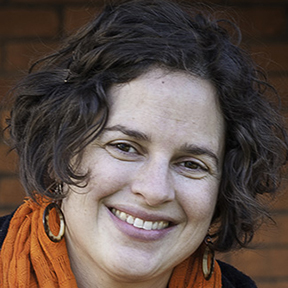 Janneken Smucker, West Chester University
Janneken Smucker, West Chester University
Janneken Smucker is Assistant Professor of History at West Chester University where she specializes in digital history, public history, and American material culture. In the college classroom, she integrates technology and the humanities, working with her students to create websites, podcasts, digital archives, and online exhibitions. In fall 2014, she co-taught “Digital Storytelling and the Great Migration to Philadelphia” with Professor Charles Hardy, teaming graduate students with undergraduate Honors College students and history majors in the creation of goinnorth.org. Prior to joining WCU’s faculty, Janneken was content specialist at Night Kitchen Interactive, a firm specializing in websites and digital projects for museums and cultural organizations. She recently served as co-curator and lead content strategist and editor for World Quilts: The American Story, a digital project of the International Quilt Study Center & Museum at the University of Nebraska—Lincoln. The author of Amish Quilts: Crafting an American Icon (Johns Hopkins University Press, 2013), Janneken lectures and writes widely on the topic of quilts for both popular and academic audiences. She earned her PhD from the University of Delaware’s Program in the History of American Civilization in 2010.
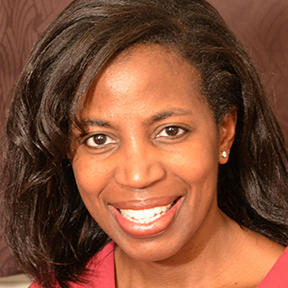 LaTanya S. Autry, Yale University Art Gallery
LaTanya S. Autry, Yale University Art Gallery
LaTanya S. Autry is a Ph.D. candidate in the art history department at University of Delaware and the Marcia Brady Tucker Fellow in photography at Yale University Art Gallery. She studies art of the United States, photography, and museums. Her dissertation The Crossroads of Commemoration: Lynching Landscapes in America explores the meaning of representation, embodied practices, collaborative art, landscape, and memorial culture. The digital humanities are integral to LaTanya’s public scholarship and social justice orientation. As an educator, she has incorporated blogging and tweeting to increase class interaction, enhance learning, and engage diverse publics in her History of Photography courses. Outside of writing her dissertation and working at the Gallery, she presents her research at academic and public lectures and engages broad audiences via social media forums, such as WordPress, Twitter, Flickr, Google Maps, and Pinterest. After earning her degree LaTanya plans to “hack” her dissertation to co-produce a multimedia exhibition centered on lynching memorials.
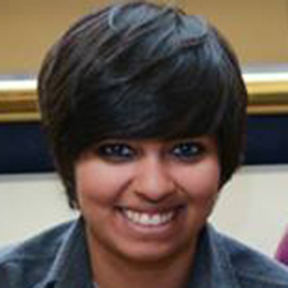 Archana Kaku, Tri-Co Digital Humanities
Archana Kaku, Tri-Co Digital Humanities
Archana Kaku is the Program Coordinator for Tri-Co Digital Humanities, a consortial DH initiative by Bryn Mawr, Haverford, and Swarthmore Colleges dedicated to promoting digital innovation through humanities-based inquiry. Her work focuses on not just the role of the undergraduate liberal arts institution, but of the undergraduate herself in digital humanities research, production, and exploration. She has also worked for the Provost Office’s Academic Technology Initiative at Bryn Mawr College.
Kristen Poole, English, University of Delaware
Engaging Difference, June 1
Date: Monday, June 1
Time: 1:00 – 3:00 p.m.
Location: Gore Hall 103
Pedagogical Responses to Classroom Cultural Difference from Summer Faculty Institute 2015
Cultural diversity provides an opportunity for all of us to learn more about the world from each other. It also calls for a more expansive understanding of student differences among faculty and students. This session will explore general strategies and specific techniques for engaging difference in the classroom. This mini-showcase will provide participants to learn about and discuss culturally responsive pedagogy, mentoring, cultural-exchange, and collaborative learning.
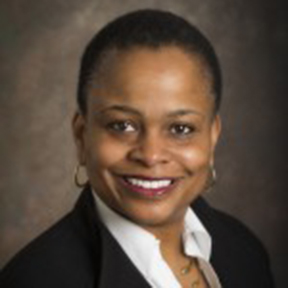 Cheryl Richardson, Center for Teaching and Assessment of Learning
Cheryl Richardson, Center for Teaching and Assessment of Learning
Cheryl R. Richardson, Assistant Director of the UD Center for Teaching and Assessment of Learning, works with faculty on exploring new pedagogies and improving existing teaching practices in order to enhance student learning. She brings to this session research, experience working with individual faculty on Scholarship of Teaching and Learning projects at other institutions as well as her own university teaching experiences.
 Ralph Begleiter, Center for Political Communication
Ralph Begleiter, Center for Political Communication
Ralph Begleiter is founding Director of the Center for Political Communication at the University of Delaware. He brings more than 30 years of broadcast journalism experience to his award-winning instruction in communication, journalism, and political science. He has traveled with university students to Cuba, South America, Turkey, the United Arab Emirates and Antarctica, and has conducted media training programs in several countries under the auspices of the U.S. Department of State. For several years, his “Global Agenda” class met weekly by videoconference with students in the Arab world, and traveled to the Middle East, to discuss cross-cultural and media issues. In 2015, he earned the University of Delaware’s Excellence in Teaching award, and in 2009, the comparable College of Arts & Sciences teaching award.
 Steve Bernhardt, English
Steve Bernhardt, English
Dr. Stephen A. Bernhardt holds the Andrew B. Kirkpatrick, Jr. Chair in Writing at the University of Delaware, from which position he promotes strong writing and communication skills across the university. He is the author of Writer’s Help, a new, Web-based reference handbook from Bedford/St. Martin’s. He teaches courses in scientific and technical communication, first year composition, computers and writing, and grammar and style. Dr. Bernhardt currently directs the Institute for Transforming Undergraduate Education (ITUE) at UD, a group of faculty who promote active, engaged learning through team, problem and project-based teaching, frequently with an emphasis on innovative technologies.
 Keeley Powell, Graduate and Professional Education
Keeley Powell, Graduate and Professional Education
Dr. Keeley Powell is Director of Recruitment and Diversity in the Office of Graduate & Professional Education at the University of Delaware. She is responsible for coordinating the recruitment and retention of underrepresented graduate students in over 100 graduate programs. She works collaboratively with faculty and administrators to provide access to and success for students who have not traditionally sought graduate degrees. Prior to her appointment at the University of Delaware, Dr. Powell worked at Rowan University in admissions, academic advising and enrollment management. Dr. Powell earned a doctorate in Educational Leadership from the University of Delaware, a Master of Arts in Sociology from the University of Maryland College Park and an Honors Bachelor of Arts with Distinction in Educational Studies from the University of Delaware.
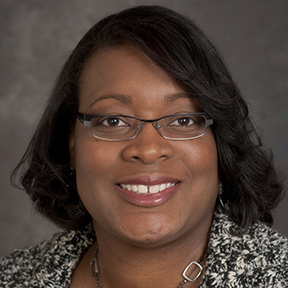 Kim Saunders, TRIO Pre-College and Student Success Programs
Kim Saunders, TRIO Pre-College and Student Success Programs
Dr. Kimberly A. Saunders is the Executive Director of TRIO Pre-College and Student Success Programs at the University of Delaware. She has worked within the areas of student access and success at the undergraduate and graduate levels for 20 years, directing offices of multicultural affairs, student activities, recruitment, and nationally recognized student success programs such as the Student Transition Empowerment Program (STEP) at George Mason University; the ACT 101 – Equal Opportunity Program at Shippensburg University; the Multicultural Fellowship Initiative at Lebanon Valley College; and the Diversity Summer Internship Program (DSIP) at the Johns Hopkins Bloomberg School of Public Health. Dr. Saunders holds a B.S. in human development from the University of Delaware, a M.S. in counseling and college student personnel development from Shippensburg University, and a doctorate in higher education administration and community college teaching from George Mason University.
Digital Humanities, June 1
Date: Monday, June 1
Time: 3:00 – 4:00 p.m.
Location: Gore Hall Rotunda
Featuring ice cream by UDairy Creamery.
Carley Becker, English major, University of Delaware
Carley Becker is a junior English major who works as a Peer Tutor at the University of Delaware’s Writing Center, writing creatively in the hopes of becoming a full-time author and publisher. This summer she is already working as an editor in Baltimore. Carley was the Project Manager for the ENGL 468 website build.
Madeline Cooper, University of Delaware
Using iBook to Explore a Parchment Manuscript
Zach Davis, actor and writer, University of Delaware
Zach Davis has studied and performed Shakespeare for ten years. At UD, Zach created and hosts Our Brief Hour, a radio show dedicated to Shakespearean poetry and prose. You can find a recording of each show, along with his other voice projects, on YouTube. He apprenticed with the Delaware Shakespeare Festival and would be thrilled to make that his life’s work. He also works as an actor and facilitator in UD’s Healthcare Theater program, training performers to portray a wide variety of patients in clinical simulations with student nurses. Zach was one of the General Editors for the ENGL 468 website build.
Carrie Edinger, digital artist
The Internet-based collection project contributes to the expanding cultural dialog of the use of digital media within contemporary art. The investigation and implementation of interdisciplinary methods are used to maintain and archive an ephemeral collection. The purpose for the Internet-based collection project is to obtain a broader knowledge of Western Cultural objects. The concept for the collection project regards objects beyond a fixed idea of how they are exhibited in traditional museum collections. The collections are formed and defined by material culture methods, along with social and culturally based research. With nearly four years in the collecting process, a website http://www.carrieida.com is the exhibit platform for the acquisitions of a continually evolving collecting process.
Kasey Grier, Director of Museum Studies, University of Delaware
Kasey Grier will showcase “Sustaining Places” – a collaborative resource project from the Museum Studies Program at the University of Delaware and the Tri-State Coalition of Historic Places. This site is supported by a grant from the Institute for Museum and Library Services’ 21st Century Museum Professionals Program. This website collects examples of good ideas and best practices for small historical organizations and the content is curated and created by MSST students.
Audrey Hamelers, University of Delaware Library
Audrey Hamelers is the Digital Humanities and Web Services Librarian at the Morris Library at the University of Delaware. Audrey will be discussing the library’s DH resources and in particular, her work with Omeka.
Mary Purnell, English major, University of Delaware
Mary Purnell is a senior at the University of Delaware, majoring in English and minoring in Spanish. She currently works as an English tutor in the University of Delaware’s Writing Center and as a TA for four Spanish classes. Synthesizing her teaching skills in both languages with her passion for literature, Mary is pursuing a career in education with a focus on teaching English as a Second Language for native speakers of Spanish. At the University of Delaware, Mary developed a keen interest in 16th and 17th century drama, particularly for Shakespeare and his Spanish counterpart, Lope de Vega.
Lawrence Shapiro, lecturer, Philadelphia University
Lawrence Shapiro will showcase his project on ethnography and liberal networks around Daniel Brinton and his circles, Franz Boas and Friedrich S. Krauss, my relatively obscure Viennese Croatian-Jewish topic of interest, for his presentations to Philadelphia and the APS: 1885, 1888, 1893.
Critical Thinking, Guest Presentation, June 2
Date: Tuesday, June 2
Time: 9:00 a.m – 10:00 a.m.
Location: Mitchell Auditorium
Measuring and Enhancing Critical Thinking of Students from Summer Faculty Institute 2015
Slides from Kevin Harris keynote presentation (PDF format)
Introduction of guest speakers: Deborah Allen, Director of Center for Teaching & Assessment of Learning
The CAT Instrument (Critical thinking Assessment Test) is a unique tool designed to assess and promote the improvement of critical thinking and real-world problem solving skills. The instrument is the product of extensive development, testing, and refinement with a broad range of institutions, faculty, and students across the country.
Come and learn about what our own UD faculty learned about how well diverse UD seniors from the class of 2015 scored on this instrument. Learn how any faculty from any discipline can more purposefully develop course activities that will require students to exercise their critical thinking skills.
Tennessee Technological University (TTU) has been engaged in an extended effort during the last 14 years to develop and refine an instrument to assess critical thinking that over-comes many of the weaknesses of other existing tools. Preeminent theoreticians and educators in the area of learning sciences and assessment participated in the project. Unlike many other available assessment tools, the Critical thinking Assessment Test (CAT) instrument uses short answer essay responses to assess critical thinking. The CAT instrument is unique in that it utilizes a campus’s own faculty to evaluate student responses. The National Science Foundation has provided support for many of these activities.
 Kevin Harris
Kevin Harris is the Associate Director of the Center for Assessment and Improvement of Learning (CAIL) at Tennessee Tech University. In his role at CAIL, Dr. Harris leads regional training workshops to prepare institutions for the implementation of the Critical-thinking Assessment Test as a performance measure of student critical thinking and as a faculty development tool. Over the past two years, Kevin has helped develop a framework associated with using the CAT as a model for course based critical thinking assessments called CAT Apps. His academic interests include the effect of high impact practices on critical thinking, the use of the CAT as a faculty development tool, and the evaluation of alternative measures in the assessment of critical thinking.
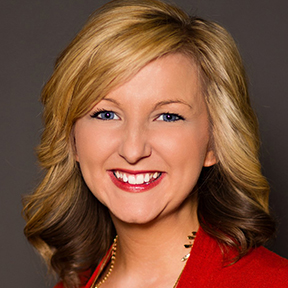 Elizabeth Lisic
Elizabeth Lisic is the Assistant Director of the Center for Assessment & Improvement of Learning (CAIL) at Tennessee Tech University. In her role at CAIL, Elizabeth provides support to institutions across the country in the implementation of the Critical-thinking Assessment Test (CAT) at multiple institutional levels. Elizabeth has extensive experience with CAT scoring sessions and helps lead training workshops throughout the country. Over the past two years, Elizabeth has helped develop the framework associated with using the CAT as a model for course-based critical thinking assessments called CAT Apps. She currently leads on-site workshops to help faculty develop and refine CAT Apps within their discipline. Elizabeth’s academic interests focus on the use of the CAT as a faculty development tool and the impact of CAT scoring as a catalyst for faculty change.
Community Engagement, Critical Thinking, Engaging Difference, June 2
Date: Tuesday, June 2
Time: 10:30 a.m. – 12:00 noon
Location: Gore Hall 116
Classroom Culture for Active Learning from Summer Faculty Institute 2015
8 Essentials Article v2014
Classroom Culture PowerPoint Slides
FreeBIE Tubric
Project Design Overview Planning
Project Assessment Map
During this workshop, attendees will have an opportunity to experience a fun and engaging project as a starting point for a group discussion about active classroom learning. Each attendee will have time to consider their own class and will leave with ideas for future class projects, methods for engaging students, and tips for assessing student learning.
 Jules Bruck, Landscape Design
Jules Bruck, Landscape Design
Jules Bruck, ASLA, PLA, is Associate Professor of Landscape Design at the University of Delaware, where she teaches courses in design process, CAD, field sketching, and planting design. She also teaches landscape design courses at Longwood Gardens, Mt. Cuba and the Barnes Foundation. She is a registered landscape architect and a permanently certified member of the Association of Professional Landscape Designers. She owns and operates Evolution Landscape Design, LLC with her husband, Tony. With a love of travel and interest in experiential education, Dr. Bruck has conducted many study abroad trips to highlight design in both Brazil and Europe. Her current research interests are in design based learning and public perception of sustainable landscape practices such as designing for ecosystem services. Dr. Bruck has a Ph.D. from Texas A&M University. Visit www.julesbruck.com
Critical Thinking, Digital Storytelling, June 2
Date: Tuesday, June 2
Time: 10:30 a.m. – 12:00 noon
Location: Gore Hall 103
Three Perspectives on the Use of Story from Summer Faculty Institute 2015
Hunger Games Meets Model U.N.: Using Role-Play as a Teaching Tool with Undergraduates
This session will share experiences of using role-playing games to build understanding of global leadership issues as well as student capacity for team building, communication and negotiation. Session attendees will be asked to participate in a short and hopefully fun activity!
Prezi link for Hunger Games Meets Model U.N.
Jennifer Fuqua, School of Public Policy and Administration
Jen Fuqua is currently an adjunct faculty member in the Organizational and Community Leadership Program, Jennifer Fuqua (ABD) is completing her doctoral studies in Public Policy and Administration at University of Delaware. Ms. Fuqua came to UD after many years as an administrator for a human services agency in Queens, New York, where she developed and supervised youth development programs in community and school settings.
Professor 13: Helping Kids, Parents and Teachers to Understand and Do Math
 Thomas Fernsler, Professional Development Center for Educators
Thomas Fernsler, Professional Development Center for Educators
Dr. Thomas Fernsler, aka “Professor 13”, has successfully taught mathematics to students at all levels K-grad school. His areas of professional interest include working with K-8 students and teachers, emphasizing a deeper understanding of mathematics content and demonstrating proven pedagogical techniques for the classroom. Tom enjoys sharing his extensive knowledge and experience gained from more than 30 years working with students and teachers from around the country. His teaching style and participation in numerous funded projects at UD and other universities place him in a unique position to help both teachers and students succeed in learning and understanding mathematics at all levels. Professor 13 is known world-wide and has been the subject of hundreds of media interviews (CNN, BBC, NBC, USA Today) focusing on his interest in triskaidekaphobia, the fear of the number 13, where he makes connections between the historical significance of 13, politics, and famous and infamous people.
Story + Theatre = Life Learning
In this segment, participants will experience a story theatre exercise and consider the potential for including similar activities in their courses.
 Allan Carlsen, Theatre
Allan Carlsen, Theatre
Allan Carlsen is Assistant Professor of Theatre for the University of Delaware where he serves as the Coordinator of Undergraduate Studies as well as the adviser for the department’s almost 300 Theatre minors. Allan personally developed two of UD’s largest and successful theatre lecture courses, one of which focuses on bringing the history of theatre alive by integrating its course work with performances by UD’s REP actors and the other which takes students behind the scenes from the inception of a production to its realization on stage.
Also, he is co-founder of UD’s innovative Healthcare Theatre program, where interdisciplinary avenues between the College of Arts and Sciences and the College of Health Sciences are explored. Here, Allan and his partner, Amy Cowperthwait, train undergraduates from throughout the university to become simulated patients, family members, and health care providers, whose performances improve the interpersonal communication skills and the clinical work of students and professionals in the health care industry.
Digital Humanities, Guest Presentation, June 2
Date: Tuesday, June 2
Time: 10:30 – 12 noon
Location: Gore Hall 104
Measuring and Enhancing Critical Thinking of Students from Summer Faculty Institute 2015
Jesse Stommel’s The Decay of the Digital Human on Vimeo
This workshop will explore methods and approaches for designing assignments that leverage digital tools for humanistic inquiry. We’ll look at several digital humanities assignments as examples, but the workshop will also raise larger interdisciplinary questions. We will talk about when and how to assess digital projects. Much of our work in education resists being formulated as neat and tidy outcomes. When learning is the goal, space should be left for wonder and experimentation.
 Jesse Stommel
Jesse Stommel is Assistant Professor of Digital Humanities in the Department of Liberal Arts and Applied Studies at University of Wisconsin-Madison. He is also Founder and Director of Hybrid Pedagogy: a digital journal of learning, teaching, and technology. Jesse is an advocate for lifelong learning and the public digital humanities. He teaches courses about digital pedagogy, digital storytelling, horror film, and Shakespeare. He experiments relentlessly with learning interfaces, both digital and analog, and works in his research and teaching to emphasize new forms of collaboration. He can be found on Twitter @Jessifer.
Critical Thinking, June 2
Date: Tuesday, June 2
Time: 1:00 – 2:00 p.m.
Location: Gore Hall 116
Two Perspectives on Critical Thinking from Summer Faculty Institute 2015
Slides from Dawn Berk and Tammy Rossi presentation (PDF format)
The Mathematical Sciences Learning Laboratory: Transforming Teaching and Learning in UD’s Introductory Mathematics Courses
Launched this spring, the Mathematical Sciences Learning Laboratory, or MSLL, aims to transform teaching and learning in UD’s introductory mathematics courses. MSLL employs a new model of teaching that integrates problem-based learning and individualized instruction. MSLL is located in a newly renovated space in McKinly Lab, featuring a large PBL classroom with fully embedded technology, a dedicated testing center, an on-site faculty team, and a full staffed tutorial center. Courses are taught on-site in an active, small group format, with adaptive technology used for targeted, personalized instruction. In our talk, we will describe this new approach and our experiences from our first semester offering two introductory mathematics courses in MSLL.
 Dawn Berk, Mathematical Sciences Learning Laboratory
Dawn Berk, Mathematical Sciences Learning Laboratory
Dawn Berk is the founding Director of the Mathematical Sciences Learning Laboratory (MSLL) and Assistant Professor in the Department of Mathematical Sciences at the University of Delaware. She earned an M.S. in Mathematics and a Ph.D. in Mathematics Education from the University of New Hampshire. Her research interests focus on the teaching and learning of undergraduate mathematics and on the mathematical preparation of teachers. She is currently the PI on two grants from the National Science Foundation to investigate the effects of mathematics teacher preparation on teachers’ knowledge, skills, and classroom practice. As Director of MSLL, Dawn facilitates the work of a team of faculty to improve teaching and learning in the foundational mathematics courses by employing a data-driven, continuous improvement model to determine what works, what does not, and why.
 Tammy Rossi, Mathematical Sciences
Tammy Rossi, Mathematical Sciences
Tammy Rossi is an instructor in the Department of Mathematical Sciences and the new Mathematical Sciences Learning Laboratory (MSLL). She spends her time finding ways to engage students and help students find success in mathematics. She developed the curriculum and taught Math 010 for the Mathematical Sciences Learning Lab this spring.
An Integrated Approach to Reduce the Propensity and Practicality of Cheating on Asynchronous, Objective, Online Assessments
Cheating, left untended, erodes the validity of evaluation and, ultimately, corrupts the legitimacy of the course. I profile an approach to manage, with an eye toward preempting, cheating on asynchronous, objective, online assessments. This approach taps various technological and social solutions to academic dishonesty, integrating them into a tech-centric, socially-sensitive pedagogy. The resulting design, engages a battery of tech tools, within a social context moderated by the testing effect, to minimize the practicality, productivity, and hence, propensity to cheat. Operationally, this design relies on the Canvas LMS to generate a differentiated series of 5 to 15 question quizzes, drawn from corresponding questions banks holding several hundred potential items. Cross-sectional data from 352 students spanning 9 classes (5 online and 4 hybrid) found consistent support for the effectiveness of the profiled pedagogy with strong indication of students’ perception of the resulting uselessness of cheating. The session closes by profiling implication of these findings to test anxiety, student engagement, learning effectiveness, and workflow efficiency.
 Daniel Sullivan, Business Administration
Daniel Sullivan, Business Administration
Daniel P. Sullivan, Professor of International Business at the Alfred Lerner College of Business of the University of Delaware, received his Ph.D. from the University of South Carolina. He researches a range of topics, including globalization and business, international management, and various aspects of pedagogy. His work on these topics has been published in leading scholarly journals, including the Journal of International Business Studies, Management International Review, Law and Society Review, and Academy of Management Journal. Similarly, Professor Sullivan, along with John Daniels and Lee Radebaugh, co-authors International Business: Environments and Operations. Published by Pearson, this text is presently in its 15th Edition, is used worldwide, and has been translated into several languages; work is underway for the 16th Edition. Relatedly, Professor Sullivan has served on the editorial boards of the Journal of International Business Studies and Management International Review. More recently, Professor Sullivan has expanded study to assess dimensions and dynamics of hybrid and online pedagogies. This works has received funding support from Academic Partnerships and been reported at various conferences and research outlets.
Community Engagement, Engaging Difference, June 2
Date: Tuesday, June 2
Time: 1:00 – 2:00 p.m.
Location: Gore Hall 103
Perspectives on Service Learning from Summer Faculty Institute 2015
The Beat Goes On
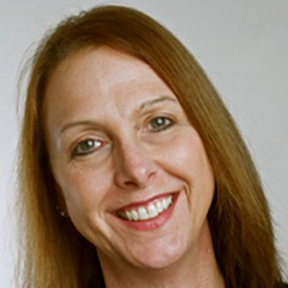 Suzanne Burton, Music
Suzanne Burton, Music
Suzanne Burton is associate professor of music education at the University of Delaware.
Student Panel Session
Student Panelists
Amanda Dell, Dietetics
Lucy Font, Elementary Teacher Education
Lindsay Yeager, Visual Communication

Moderator:
Sue Serra, Office of Service Learning
Susan Serra serves as Assistant Director of the Office of Service Learning, which she founded in 2004. She works with faculty, students, and community organizations to develop sustainable partnerships through service-learning and community-based research. She coordinates the Service Learning Scholars, a summer service immersion program and is a member of the national Summer Service Collaborative. Serra served on the steering committee of the UD Carnegie Community Engagement Elective Classification Taskforce and currently serves on the UD Community Engagement Commission. She earned her M.A. in Liberal Studies from the University of Delaware.
Digital Humanities, Guest Presentation, June 2
Date: Tuesday, June 2
Time: 1:00 – 3:00 p.m.
Location: Gore Hall 104
Teaching with Social Media Platforms from Summer Faculty Institute 2015
Please note: To play along in this session, please create your accounts (and download apps) in advance in Tumblr, Pinterest, Twitter, Instagram, and Snapchat.
This hands-on workshop will walk participants through the application of various social media platforms, such as Tumblr, Pinterest, Twitter, Instagram, and Snapchat, to digital humanities pedagogy. Emphasis will be on the affordances of these platforms in creating a wide range of assignments.
 Michelle Moravec
Michelle Moravec is an associate professor of history at Rosemont College in Philadelphia, PA. After receiving her Ph.D. in US history from the University of California Los Angeles, she worked in a range of alt-ac positions including women’s leadership and directing the Women’s Center at William Paterson University. She is a frequent digital history workshop presenter. Her writings about the field have appeared in The Chronicle of Higher Education, Inside Higher Education, the University of Venus, and Women in Higher Education and at her monthly column for the Mid-Atlantic Research Center for the Humanities. Her current project, the Politics of Women’s Culture, is being written in public on the web and has been funded by the Getty Research Institute, the Schlesinger Library, and Barnard College Library.Her completed digital history projects include Gender in the History of Woman Suffrage, Unghosting Apparitional Lesbian History, and Visualizing Schneemann. She also collaborates with students at Rosemont College and Villanova University on two additional digital history project, Till I’ve Done All that I Can: Alma A Clarke’s Great War, and Chapel of Delight: the Chapel of the Immaculate Conception at Rosemont College.
Critical Thinking, Engaging Difference, June 2
Date: Tuesday, June 2
Time: 2:15 – 3:15 p.m.
Location: Gore Hall 208
In this session, attendees will practice applying a critical thinking rubric to evaluate student work. Attendees will learn and practice techniques for consistent scoring. Attendees will also learn easy ways to determine if a rubric is being applied consistently (by one or more people) and make suitable modifications.
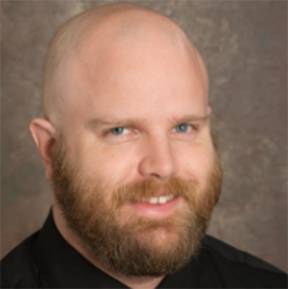 Kevin Guidry, Center for Teaching and Assessment of Learning
Kevin Guidry, Center for Teaching and Assessment of Learning
Kevin R. Guidry is Senior Research Analyst at the UD Center for Teaching and Assessment of Learning. He works with faculty on exploring new pedagogies and improving existing teaching practices to enhance student learning. Guidry specializes in assessment of student learning and survey methodology having worked on teaching, learning, and assessment research and practice at levels ranging from individual courses to projects spanning hundreds of colleges and universities.
Kathy Pusecker, Center for Teaching and Assessment of Learning
Kathleen Langan Pusecker is the Director of Educational Assessment at the University of Delaware. She establishes and maintains relationships with faculty members, Chairs, Deans, and other senior internal constituencies and external agencies, to include national accreditation bodies. She also serves on the Faculty Senate General Education Committee that passed new goals in November 2014. Her responsibilities include assisting UD in addressing the Middle States Commission on Higher Education accreditation standards related to the assessment of general education and student learning. She helps to select and develop tools and oversees their implementation and the analysis and reporting of data. Pusecker establishes critical communications and coordination with internal constituencies and University senior decision-makers to address issues that may affect execution/implementation of University strategic plans, policies and programs. In addition, Pusecker publishes the reports of student learning outcomes for the College Portrait.
Digital Storytelling, June 2
Date: Tuesday, June 2
Time: 2:15 – 3:15 p.m.
Location: Gore Hall 218
Whether or not you’ll be joining tomorrow’s mobile safari, this event will help you get the most out of mobile photography apps. Topics will cover using the best cross platform mobile editing, add-on camera apps, as well as tips that will help you improve your image quality when using those apps. What to look for when exploring apps, photo accessories, and more.
Those registered for the mobile safari are highly encouraged to attend this session.
Don’t forget to charge your preferred device and bring it to this session!
Debbie Jeffers, Academic Technology Services
Digital Storytelling, Guest Presentation, June 3
Date: Wednesday, June 3
Time: 9:00 – 10:00 a.m.
Location: Mitchell Auditorium
Digital Storytelling to Scholarly Storytelling from Summer Faculty Institute 2015
Alongside strong writing and speaking skills, crafting media messages represents an essential literacy helping students share their stories with a global audience. As media projects continue to increase in a range of academic areas, digital storytelling provides a common set of strategies and skills on which to build. Dr. Kyle Dickson will describe how faculty at Abilene Christian University paired training in media production with digital storytelling in courses from composition and journalism to psychology and math.
 Kyle Dickson, Abilene Christian University
Kyle Dickson, Abilene Christian University
Kyle Dickson directs the AT&T Learning Studio at Abilene Christian University, enabling students and faculty to craft media messages for a global audience. Since 2005, he has worked with the Adams Center for Teaching and Learning to support innovative faculty in podcasting, course blogging, and mobile learning. In 2011, he became director of the Learning Studio, part collaborative learning space, part media production sandbox. Since 1999, Kyle has sought to blur the edges of the classroom in residential, online, and study abroad courses. He developed inter-disciplinary courses for the ACU in Oxford and Summer Online programs as well as the national college curriculum for the This I Believe series on NPR. As associate professor of English, he regularly teaches undergraduate, graduate and honors courses in British literature, drama, satire, film, and media production.
Community Engagement, Critical Thinking, Digital Humanities, Digital Storytelling, Engaging Difference, June 3
Date: Wednesday, June 3
Time: 10:30 – 12:00 noon
Location: Gore Hall 104
Optimize Your Professional Online Presence from Summer Faculty Institute 2015
Learn best practices for building your digital brand as an academic professional. Participants will leave this session with recommendations for a universally-identifiable Internet name, a bio sketch tailored for different social media channels, and the start on a checklist of the most important steps to take to establish your optimal professional online presence (that is to say, what people see when they google you).
 Holly Norton, Communications and Public Affairs
Holly Norton, Communications and Public Affairs
Holly Norton is a communications professional who specializes in digital strategy and social media production, analysis and marketing. Throughout her 15-year career at Gannett, Holly worked in the sports department as a copy editor and writer, launched Spark, a successful entertainment weekly focused on Delaware young professionals, and led the newsroom in social media development and strategy as the community engagement editor. As The News Journal and Delawareonline brand transitioned into a paid content business model, Holly designed and implemented a social media strategy for reporters and editors, a crisis and brand reputation management protocol and acted as a liaison between the marketplace and The News Journal staff. Holly has been recognized by Gannett corporate as a leading manager, recipient of Chairman’s Award, Individual Excellence Award, as well as received multiple Delaware Press Association awards for column writing and editing. She is also a University of Delaware alumnus, class of 1998.
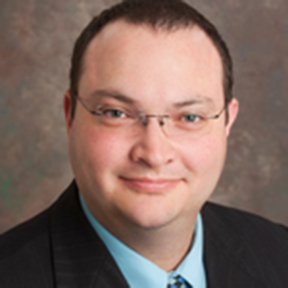 Mathieu Plourde, Academic Technology Services
Mathieu Plourde, Academic Technology Services
Mathieu Plourde is an educational technologist with IT Academic Technology Services at the University of Delaware. He holds a bachelor’s degree in graphic design (2000) and an M.B.A. (2006), both acquired at Université Laval, Quebec City, Canada. He is now pursuing an Ed.D. in educational leadership at the University of Delaware, and taught a class on social networking for educators in 2012. His multidisciplinary background (graphic, web and instructional design, IT, marketing, e-commerce, management, communication, education, etc.) gives him a unique view of teaching, learning, and user support. He is also a social media strategist and an open education advocate.
Digital Storytelling, June 3
Date: Wednesday, June 3
Time: 10:30 a.m. – 12:00 p.m.
Location: Gore Hall 218
Participants in the digital storytelling track will share initial story ideas in a workshop format that will help them develop strategies for scripting, visualizing, and hearing their digital story.
 Kyle Dickson, Abilene Christian University
Kyle Dickson, Abilene Christian University
Kyle Dickson directs the AT&T Learning Studio at Abilene Christian University, enabling students and faculty to craft media messages for a global audience. Since 2005, he has worked with the Adams Center for Teaching and Learning to support innovative faculty in podcasting, course blogging, and mobile learning. In 2011, he became director of the Learning Studio, part collaborative learning space, part media production sandbox. Since 1999, Kyle has sought to blur the edges of the classroom in residential, online, and study abroad courses. He developed inter-disciplinary courses for the ACU in Oxford and Summer Online programs as well as the national college curriculum for the This I Believe series on NPR. As associate professor of English, he regularly teaches undergraduate, graduate and honors courses in British literature, drama, satire, film, and media production.
Shelly McCoy, University of Delaware Library
Digital Storytelling, June 3
Date: Wednesday, June 3
Time: 10: 30 a.m. – 4 p.m. (special all-day session)
Location: Faculty Commons, Pearson Hall 116
The mobile photo safari is designed to encourage the use of your own photography for course-related materials and activities by exploiting the ubiquity and convenience of mobile devices. For you and your students, mobile photography presents new opportunities for community connections. The all day session will include a photography lesson, photo assignment, and photo shoot on campus and Main Street.
After lunch, you’ll work with your mobile device to post-process images, tag and catalog, and post online. The event is intended for iPhone, iPad, Android, and Windows Phone owners. Registrants will be advised on specific photo apps to load prior to the event. These photos can be incorporated into a digital storytelling project (see related sessions in this theme).
Safari guides:
Jon Cox, Art
Debbie Jeffers, Academic Technology Services
 Jon Cox, Art
Jon Cox, Art
Jon Cox is an Assistant Professor in the Department of Art and Project Liaison in the Interdisciplinary Science and Engineering Lab at the University of Delaware. He has served as a Board Member of the Dorobo Fund for Tanzania since 2006. Cox’s latest published work was a six-year documentary book project with hunter-gatherers in Tanzania titled Hadzabe, By the Light of a Million Fires. Cox has directed over twenty photographic study abroad programs across the globe including destinations to Antarctica, South East Asia, Tanzania, Australia, Tasmania and several countries in South America. He was a pioneer in the field of digital photography, served as the adventure photographer/writer for Digital Camera Magazine and authored two Amphoto digital photography books. Cox is the 2014 co-recipient of a National Geographic – Genographic Legacy Fund Grant to support a collaborative cultural mapping initiative with the Ese’Eja hunter-gatherers living in the Amazon basin of Peru.
Digital Storytelling, June 3
Date: Wednesday, June 3
Time: 12:00 – 1:00 p.m. (during lunch)
Location: Gore Hall Rotunda
Facilitators: Student Multimedia Design Center staff
A safe zone for picking up, using, and asking questions about the video equipment you can check out in the Student Multimedia Design Center. Want to buy your own equipment, but don’t know what questions to ask? Want to take your videos to the next level with additional mics, lighting, tripod dollies, or other equipment? Stop in over lunch today.
Community Engagement, Digital Humanities, Engaging Difference, June 3
Date: Wednesday, June 3
Time: 1:00 – 2:00 p.m.
Location: Gore Hall 104
Getting Our Hands Dirty: An Environmental Humanities Farm Project
An Environmental Humanities Farm Project from Summer Faculty Institute 2015
This talk will describe a new Environmental Humanities collaboration with a local organic farm, which has humanities studies planting, tending, harvesting, preparing and marketing organic produce. The project, in its first year, has been the center of a semester-long study of local and global food systems; has been a source of a number of student-written articles and essays; and is on the verge of “scaling up” with an eye on providing more local, organic food to the university and the Newark and Wilmington communities.
 McKay Jenkins, English
McKay Jenkins, English
McKay Jenkins has been writing about people and the natural world for almost 30 years. He is the author (with EG Vallianatos) of Poison Spring: The Secret History of Pollution and the EPA (Bloomsbury, 2014); What’s Gotten Into Us: Staying Healthy in a Toxic World (Random House, 2011); Bloody Falls of the Coppermine: Madness, Murder and the Collision of Cultures in the Arctic, 1913 (Random House, 2005); The Last Ridge: The Epic Story of the U.S. Army’s 10th Mountain Division and the Assault on Hitler’s Europe (Random House, 2003); The White Death: Tragedy and Heroism in an Avalanche Zone (Random House, 2000); and The South in Black and White: Race, Sex, and Literature in the 1940s (Univ. of North Carolina Press, 1999) and the editor of The Peter Matthiessen Reader (Vintage, 2000). Jenkins holds degrees from Amherst, Columbia’s Graduate School of Journalism, and Princeton, where he received a PhD in English. A former staff writer for the Atlanta Constitution, he has also written for Outside, Orion, The New Republic, The Huffington Post, and many other publications. Currently the Tilghman Professor of English, Journalism and Environmental Humanities at the University of Delaware, he lives in Baltimore with his family.
Introducing Students to the Geography of Environmental Justice: Spatial Visualization and Social Science for General Education
The Geography of Environmental Justice from Summer Faculty Institute 2015
Victor Perez presentation slides and handout (PDF format)
Studying environmental justice communities with maps allows students to see several related social phenomena, including race and socio-economic status, layered with specific geographic areas that have disproportionate levels of environmental burdens. The spatial patterns of race, socio-economic status, and pollution are not a coincidence, and have deep roots in industry, poverty, housing, race, and discrimination. This presentation will highlight one example drawn from the planned curriculum for a general education course on integrating spatial visualizations into social science analyses. The curriculum, supported by a 2014-15 IT/CTAL Innovative Transformation Grant, is being developed for a course that will allow non-geography, non-social science students an opportunity to see the power of mapping in the social sciences without a sophisticated GIS background.
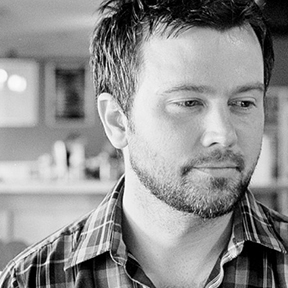 Victor Perez, Sociology
Victor Perez, Sociology
Victor Perez is an assistant professor of sociology with specializations in the sociology of risk, public health, medical sociology, and survey research. A unifying theme throughout his graduate student and early professorial career is the entwined configuration of health, risk, and society, focusing on health issues as social problems. Currently, his research projects include a survey of vaccine risk perception; citizen-science alliances dealing with legacy pollution and sea-level rise in impoverished areas; and studying how the popular media presents the issue of cancer clusters. As a faculty member in the Department of Sociology and Criminal Justice at UD, he regularly teaches quantitative sociological research methods, social statistics, and data analysis, as well as introductory sociology. Other courses that he has created include the Sociology of Diagnosis, as well as Environment and Health.
Digital Storytelling, June 3
Date: Wednesday, June 3
Time: 1:00 – 2:00 p.m.
Location: Gore Hall 218
Building on the story circles morning session, this workshop will be a crash course in all the steps successful filmmakers take before they start shooting video. Participants will come away understanding the importance of pre-production and prepared to complete: treatments, moodboards, location scouting, scripts, storyboards, shot lists, and dry runs. Both pen and paper and digital approaches will be introduced.
 Nico Carver, Student Multimedia Design Center
Nico Carver, Student Multimedia Design Center
Nico Carver is the coordinator of Student Multimedia Design Center services at the University of Delaware Library. His background is in experimental filmmaking, which he studied at Hampshire College. He holds an M.S. in Library Science from the University of North Carolina at Chapel Hill.
Community Engagement, Critical Thinking, Digital Humanities, Digital Storytelling, June 3
Date: Wednesday, June 3
Time: 2:15 – 3:15 p.m.
Location: Gore Hall 104
Five Minutes of Fame from Summer Faculty Institute 2015
Five Minutes of Fame is a fast-paced session where you can pick up ten exciting ideas, technologies, projects, or resources, all in five minute doses. Presentations can come from any faculty or staff participant at this year’s institute. Want to be considered for this year’s list of 10? E-mail your idea to faculty-commons@udel.edu
Doceri by Kim Graves, Interdisciplinary Science Learning Laboratory
Be untethered from the podium, as you control (and annotate!) your presentation from anywhere in the room.
TED-Ed Videos by Mu He, IT Academic Technology Services
Build a lesson around any TED-Ed Original, TED Talk or YouTube video.
Practicing Partnership by Lindsay Hoffman, Communication
Students cross divides to apply technology to social, political problems.
Flippity by Sandy McVey, IT Academic Technology Services
Easily turn a Google spreadsheet into a trivia game show.
StrengthsQuest by Michele Kane, Residence Life & Housing
StrengthsQuest – helping students reach their full potential: StrengthsQuest is an inventory which helps students understand their natural talents and ways of being. When students better understand their talents and apply these ways of being to everyday actions, they can turn the talent into a strength. This tool has been used to help students work in teams and approach challenges. Additionally, the online tools connected to this inventory help students understand how to best approach their academics, relationships, and their career search.
IT Security for Faculty by Sean Barefoot, IT Client Support & Services
Best Practices in IT Security for Faculty
Name That Tool by Becky Kinney, IT Academic Technology Services
A new tool for working with online assessment
Whiteboard Video Creation Tools by Aaron Davis, CUNY- Hostos Community College
Leveraging student Consumption of Media: Learn about media consumption trends, and how Whiteboard video tools can leverage student retention.
(Hat tip to the New Media Consortium for pioneering this session format.)
Digital Storytelling, June 3
Date: Wednesday, June 3
Time: 2:15 – 3:15 p.m.
Location: Gore Hall 218
Shooting a successful video requires planning and an understanding of a few basics of film production. This workshop will introduce participants to techniques that will improve the way that footage looks and sounds. The workshop will demonstrate equipment that is available to be borrowed from the Student Multimedia Design Center in order to successfully: frame it (using cameras and tripods), mic it (using booms or lavaliers), and light it (using 3-point lighting techniques and more).
Student Multimedia Design Center orientation will follow this session (open to all institute participants).
 Hannah Lee, Student Multimedia Design Center
Hannah Lee, Student Multimedia Design Center
Hannah K. Lee is a senior assistant librarian and program coordinator for the multimedia literacy program in the Student Multimedia Design Center at the University of Delaware Library. Her responsibilities include collaborating with faculty across departments and assisting students in creating multimedia content. She has a B.A. in English with a minor in Education, an M.A. in English with a specialization in Writing Studies, and an M.S. in Library and Information Science, all from the University of Illinois at Urbana-Champaign.
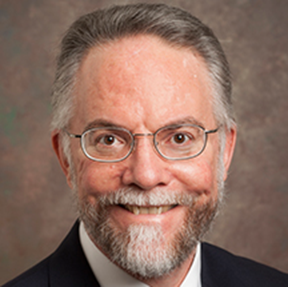 John Stevenson, Student Multimedia Design Center
John Stevenson, Student Multimedia Design Center
John A, Stevenson is an associate librarian in the Student Multimedia Design Center. He has served as selector for spatial data and U.S. government information at the University of Delaware Library since 1990 and in 2012 became selector for the history of science. His expertise includes: Adobe Premier Pro and other multimedia applications; photography; GIS and data acquisition; and the Library’s microform, map, and CD-ROM collections. As an instructor for the multimedia literacy program, he helps faculty to teach their classes the tools they need to create multimedia projects, which include any combination of video, audio, text, and graphics. He has a B.A. in History from Binghamton University and an M.L.S. in Library and Information Science from the University at Buffalo.
Digital Storytelling, June 3
Date: Wednesday, June 3
Time: 3:15 p.m.
Location: Student Multimedia Design Center, Morris Library
Facilitators: John Stevenson, Student Multimedia Design Center
Student Multimedia Design Center orientations — attendance at the earlier digital storytelling sessions is not required.
Community Engagement, Critical Thinking, Digital Humanities, Digital Storytelling, Engaging Difference, June 4
Date: Thursday, June 4
Time: 9:00 – 10:00 a.m.
Location: Mitchell Auditorium
Video Street Ethnography from Summer Faculty Institute 2015
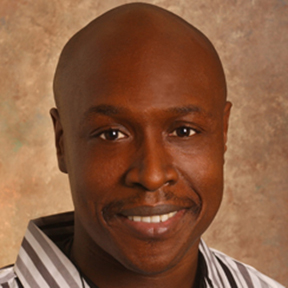 Yasser A. Payne
Yasser A. Payne is an associate professor in the Department of Black American Studies at the University of Delaware. His street ethnographic research program is centered on exploring notions of resiliency with the streets of Black America using an unconventional methodological framework entitled Participatory Action Research–the process of involving members of the population of interest on the actual research team.
His approach to diversity is centered on exploring or examining the variation of psychological identity as it relates to Black and Brown populations involved with the criminal justice system. In most instances, such populations are framed in a monolithic way and Dr. Payne through his research has found great emotional, psychological and developmental variation. Also, he aims to break down or through stereotypical barriers and images of Black and Brown people in the criminal justice system, so that transition back in the community and opportunities for upward mobility are successful. Dr. Payne’s work is centered on humanizing those in the criminal justice system and getting undergraduate and graduate students as well as faculty and/or everday residents to work more closely with those in the criminal justice system.
Critical Thinking, June 4
Date: Thursday, June 4
Time: 10:30 – 12:00 noon
Location: Gore Hall 103
Any Questions from Summer Faculty Institute 2015
“Judge a teacher by their questions rather than their answers” (with apologies to Voltaire) sums up this session nicely. Through the perspectives of 3 faculty, this session will demonstrate several techniques that break from lecture mode and encourage thoughtful participation and meaningful discussion. The presenters have applied these techniques in classes of 10 to 120, in a mix of face-to-face and online class formats. You’ll experience over 12 specific models for questioning that can be applied to your course.
 Terry Harvey, Computer & Information Sciences
Terry Harvey, Computer & Information Sciences
Terry Harvey, Associate Professor of Computer Science, received his BS in Marketing and his PhD in Artificial Intelligence from the University of Delaware. Harvey uses problem-based ;earning and clickers to keep classes engaged, and likes projects that require collaborations outside the classroom. He has taught a Software Engineering course that collaborates with an Art class to produce serious games, and also “Educational Game Design for the XO Laptop” in which UD student teams collaborate with local middle school teachers to design and implement educational games for the middle school classroom. Working with Profeessor Lori Pollock, the XO collaboration received a 3-year grant from the NSF’s Broadening Participation in Computing program. Harvey was awarded the University’s Excellence in Teaching Award in 2009.
 Anja Leefeldt, Dietetic Internship Program
Anja Leefeldt, Dietetic Internship Program
Anja Leefeldt is the Dietetic Internship Director at the University of Delaware. The course content for the internship program is delivered in an online format, so Anja has trialed several strategies for enhancing student engagement and critical thinking in the absence of regular face-to-face contact. She will share some of the strategies from her experiences teaching online and in the classroom. Prior to teaching, Anja worked as a clinical dietitian for 12 years.
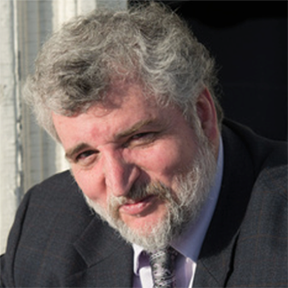 Richard Gordon, Computer & Information Sciences
Richard Gordon, Computer & Information Sciences
Most UD faculty know Richard Gordon as the Manager of UD’s IT Communication Group, but he also holds a secondary appointment as adjunct assistant professor of Computer and Information Sciences (CISC). He has 25 years teaching experience at the university level: Seven years in the English departments at the University of Missouri and the University of Delaware, and 18 years in UD’s CISC department. At the 2015 Institute, he will share his experiences teaching CISC355 (Computers, Ethics, and Society—1995-2013) and CISC356 (Intellectual Property in the Digital Age—2008-2015). This will be Richard’s sixth appearance in a UD Faculty Institute session.
In his primary job in UD IT, he has actively supported faculty and student use of technology, developed support for and communication about information security, and written and presented about a variety of IT-related topics, including a stint as technology columnist for the Wilmington News Journal. Outside UD, he is known as the bassist with the local old-time band Tater Patch and the host of two public affairs programs on WVUD radio, Campus Voices and The Music Room.
Community Engagement, Engaging Difference, June 4
Date: Thursday, June 4
Time: 10:30 – 12:00 noon
Location: Gore Hall 104
A Continuum from Outreach to Engagement from Summer Faculty Institute 2015
Community Engagement Project Development
Community Engagement Presentation Slides
Community Engagement Rubric
During this workshop, participants will gain knowledge about teaching, research, service and arts based community engagement projects.
A. Defining Community Engagement
- Describe Carnegie Foundation core definitions that influenced our achievement of the Carnegie designation
- Highlight examples of community engagement at UD from the Carnegie Application (utilize videos from our Carnegie Celebration)
- Explore a continuum of Community Engagement
- Differentiate outreach and engagement (via a rubric)
- Outline areas of growth identified by the Carnegie Foundation: assessment, faculty rewards, mutuality in partnerships
B. Synthesis Activity
- Participants will gather in small groups (various colleges represented in each group) and each group will be provided an example of community engagement. The group will discuss the example and identify where the example belongs on the continuum and explain why.
- Each group will present their rationale and the facilitators will lead discussion about how each example is important and how to enhance community engagement.
C. Reflection
- Ask individual participants to brainstorm an idea for a community engagement project within their discipline.
- Participants will be encouraged to join the second workshop after lunch to flesh out their example further through activities developed.
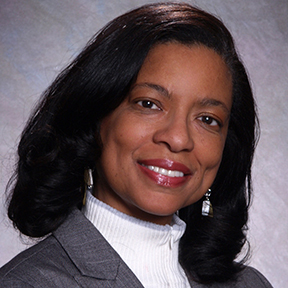 Lynette Overby, Theatre
Chair of the Community Engagement Commission at the University of Delaware
Lynette Overby, Theatre
Chair of the Community Engagement Commission at the University of Delaware
Lynnette Young Overby, Ph.D. is a Professor of Theatre and Dance, and Chair of the Community Engagement Commission at the University of Delaware. She is the author or coauthor of over 40 publications including eight books. Her honors include the 2000 National Dance Association Scholar/Artist, and the 2004 Leadership Award from the National Dance Education Organization. She is a strong believer in interdisciplinary education and community engagement. A daCi International At-Large board member, she is the archivist for the organization Dr. Overby is currently collaborating with literary historian P. Gabrielle Foreman on a long term “Performing African American History” research project. She was a member of the dance writing team for the new National Core Arts Standards.
 Jules Bruck, Landscape Design
Jules Bruck, Landscape Design
Jules Bruck, ASLA, PLA, is Associate Professor of Landscape Design at the University of Delaware, where she teaches courses in design process, CAD, field sketching, and planting design. She also teaches landscape design courses at Longwood Gardens, Mt. Cuba and the Barnes Foundation. She is a registered landscape architect and a permanently certified member of the Association of Professional Landscape Designers. She owns and operates Evolution Landscape Design, LLC with her husband, Tony. With a love of travel and interest in experiential education, Dr. Bruck has conducted many study abroad trips to highlight design in both Brazil and Europe. Her current research interests are in design based learning and public perception of sustainable landscape practices such as designing for ecosystem services. Dr. Bruck has a Ph.D. from Texas A&M University. Visit www.julesbruck.com
 Jon Cox, Art
Jon Cox, Art
Jon Cox is an Assistant Professor in the Department of Art and Project Liaison in the Interdisciplinary Science and Engineering Lab at the University of Delaware. He has served as a Board Member of the Dorobo Fund for Tanzania since 2006. Cox’s latest published work was a six-year documentary book project with hunter-gatherers in Tanzania titled Hadzabe, By the Light of a Million Fires. Cox has directed over twenty photographic study abroad programs across the globe including destinations to Antarctica, South East Asia, Tanzania, Australia, Tasmania and several countries in South America. He was a pioneer in the field of digital photography, served as the adventure photographer/writer for Digital Camera Magazine and authored two Amphoto digital photography books. Cox is the 2014 co-recipient of a National Geographic – Genographic Legacy Fund Grant to support a collaborative cultural mapping initiative with the Ese’Eja hunter-gatherers living in the Amazon basin of Peru.
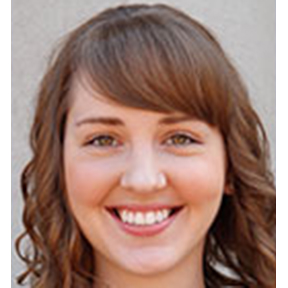 Kate Colyer, Residence Life & Housing
Kate Colyer, Residence Life & Housing
As a Complex Coordinator, Colyer supports the academic and personal growth of the nearly 600 residents residing in George Read North and South. She supervises a professional Residence Hall Coordinator and indirectly supervises a student-staff team of 14 Resident Assistants to ensure prioritization of each student’s personal, academic, and co-curricular engagement at UD. She is an instructor of the Academic Integrity Seminar in the Office of Student Conduct. Finally, she supports faculty, staff, and Peer Mentors in the implementation of three Living Learning Communities (LLC): Biological Sciences LLC, the “Discover our World” College of Earth, Ocean, and Environment LLC, and the “Thrive” Wellness LLC within George Read complex. She served on the Carnegie Community Engagement Classification Task Force and is a member of the Community Engagement Commission.
Ed Lewandowski, College of Earth, Ocean, & Environment
 Yasser Payne, Black American Studies
Yasser Payne, Black American Studies
Yasser A. Payne is an associate professor in the Department of Black American Studies at the University of Delaware. His street ethnographic research program is centered on exploring notions of resiliency with the streets of Black America using an unconventional methodological framework entitled Participatory Action Research–the process of involving members of the population of interest on the actual research team.
Steve Peuquet, School of Public Policy & Administration
 Sue Serra, Office of Service Learning
Sue Serra, Office of Service Learning
Susan Serra serves as Assistant Director of the Office of Service Learning, which she founded in 2004. She works with faculty, students, and community organizations to develop sustainable partnerships through service-learning and community-based research. She coordinates the Service Learning Scholars, a summer service immersion program and is a member of the national Summer Service Collaborative. Serra served on the steering committee of the UD Carnegie Community Engagement Elective Classification Taskforce and currently serves on the UD Community Engagement Commission. She earned her M.A. in Liberal Studies from the University of Delaware.
 April Veness, Geography
April Veness, Geography
April Veness is an Associate Professor in the Department of Geography. She specializes in applied social geography and frequently involves her students in off-campus research and service. Most recently, students in her Global at Home and Newark DE: People, Place and Politics courses participated in community-based research projects addressing issues of interest to the local community. In Georgetown, Delaware they worked with local stakeholders on a bilingual door-to-door survey about communication issues in that ethnically diverse town. In Newark, Delaware they worked with the City of Newark and members of the UD Community Engagement Commission to do preliminary outreach and an online survey inventorying campus-community partnerships. In each of those projects students presented their findings to the community in formal reports and presentations.
Digital Storytelling, June 4
Date: Thursday, June 4
Time: 10:45 a.m. – 11:45 p.m. (to accommodate travel to and from Morris Library)
Location: Room B, Student Multimedia Design Center, Morris Library
The final step in the digital storytelling process is post-production, where you edit your raw footage to create your finished video. Apple’s iMovie is a great consumer level video editing program that is flexible and easy to use. This hands-on workshop will explore iMovie’s entire editing process from beginning to end.
 Hannah Lee, Student Multimedia Design Center
Hannah Lee, Student Multimedia Design Center
Hannah K. Lee is a senior assistant librarian and program coordinator for the multimedia literacy program in the Student Multimedia Design Center at the University of Delaware Library. Her responsibilities include collaborating with faculty across departments and assisting students in creating multimedia content. She has a B.A. in English with a minor in Education, an M.A. in English with a specialization in Writing Studies, and an M.S. in Library and Information Science, all from the University of Illinois at Urbana-Champaign.
 Nico Carver, Student Multimedia Design Center
Nico Carver, Student Multimedia Design Center
Nico Carver is the coordinator of Student Multimedia Design Center services at the University of Delaware Library. His background is in experimental filmmaking, which he studied at Hampshire College. He holds an M.S. in Library Science from the University of North Carolina at Chapel Hill.
June 4
Date: Thursday, June 4
Time: 1:00 – 3:00 p.m.
Location: Gore Hall 103
This hands-on workshop will apply research-based concepts to help make your classroom presentations more understandable and memorable.
We’ll work with principles from SFI 2014’s guest presentation, “Averting Death by Academic PowerPoint! From Killer Professors to Killer Presenters” by Christy Price, Dalton State University, and SFI 2007’s guest presentation, “Multimedia Learning” by Richard Mayer, University of California Santa Barbara, among other sources.
Bring your least favorite classroom presentation file and we’ll provide additional practice materials. We’ll demonstrate before and after models and assist while you try out these techniques on your own to determine what meets your personal teaching style and goals.
Some of the principles that will be the basis for hands-on, guided exploration:
- A slide is not a handout
- A slide is a visual medium
- Visual simplicity
- Dual encoding (visual + verbal) processing of information
- Cognitive guidance or way-finding techniques
- Sensory memory, working memory, and long-term memory
- Storytelling in classroom presentations
- Presentation formats that promote interactivity
- Special considerations for pre-recorded presentations
Paul Hyde, Academic Technology Services
Sandy McVey, Academic Technology Services
Community Engagement, Engaging Difference, June 4
Date: Thursday, June 4
Time: 1:00-3:00 p.m.
Location: Gore Hall 104
Creating Scholarly Community Engagement Projects from Summer Faculty Institute 2015 hosted by UD Capture
At the conclusion of this workshop, participants have created a mutually beneficial community engagement project.
Following the workshops, a small group of faculty will be invited to become members of a community engagement learning community. They will each receive a $500 stipend for their participation. The faculty will attend workshops and continue creating and implementing their community engagement project during the 2015 – 2016 academic year.
A. Sustainable Costal Communities – How to Develop Community Engagement at UD (15-20 minutes)
- Julie Bruck and Ed Lowendowski will share their experience developing, implementing, assessing, and disseminating this community engagement project.
- Ensure they highlight steps along the checklist we will provide for how to create community engagement experiences as well as describing the benefits their time and investment in this experience has had on their career
B. Application Activity (45 minutes)
- Participants will utilize a worksheet to walk them through essential steps for developing a community engagement project that aligns with the Carnegie Foundation definitions. Commission members will travel the room to assist faculty and staff as they work through the worksheet.
- Ask participants to move into small groups of 2-3 people to share the community engagement project they have developed through the worksheet. Commission members will travel the room to assist faculty and staff through their conversations.
C. Concluding Remarks (10 minutes)
- Describe investment needed to be successful in developing community engagement projects. Evaluate whether this is the right time in your career to invest in this model of teaching/research.
- Discuss resources that exist to assist faculty and staff moving forward in developing community engagement projects.
- Review all the benefits this form of teaching/research has for faculty
Digital Storytelling, June 4
Date: Thursday, June 4
Time: 1:00 – 2:00 p.m.
Location: Room B, Student Multimedia Design Center, Morris Library
This workshop is for participants who already know the basics of iMovie, and who would like to explore some of its more advanced features. Topics will include advanced audio, video, and green screen concepts.
Student Multimedia Design Center orientation will follow this session and is open to all institute participants.
 Hannah Lee, Student Multimedia Design Center
Hannah Lee, Student Multimedia Design Center
Hannah K. Lee is a senior assistant librarian and program coordinator for the multimedia literacy program in the Student Multimedia Design Center at the University of Delaware Library. Her responsibilities include collaborating with faculty across departments and assisting students in creating multimedia content. She has a B.A. in English with a minor in Education, an M.A. in English with a specialization in Writing Studies, and an M.S. in Library and Information Science, all from the University of Illinois at Urbana-Champaign.
 Nico Carver, Student Multimedia Design Center
Nico Carver, Student Multimedia Design Center
Nico Carver is the coordinator of Student Multimedia Design Center services at the University of Delaware Library. His background is in experimental filmmaking, which he studied at Hampshire College. He holds an M.S. in Library Science from the University of North Carolina at Chapel Hill.
Digital Storytelling, June 4
Date: Thursday, June 4
Time: 2:00 p.m.
Location: Student Multimedia Design Center, Morris Library
Facilitators: John Stevenson, Student Multimedia Design Center
Student Multimedia Design Center orientations — attendance at the earlier digital storytelling sessions is not required.
Digital Humanities, Digital Storytelling, June 4
Date: Thursday, June 4
Time: 2:15 – 3:15 p.m.
Location: Room B, Student Multimedia Design Center, Morris Library
Introduction to Artstor hosted collections and their creation and maintenance using the Shared Shelf platform. Overview on the structuring and decisions involving item level metadata, the target audiences, rights, Creative Commons licensing and associated topics. Concluding with a walk through of the mechanics of entering and maintaining information in Shared Shelf.
Mary Durio, University of Delaware Library
Mary Durio is in charge of the University of Delaware Library’s Center for Digital Collections. She has extensive experience working with digital collections creation and content conversion. She is in charge of developing digital collections that are housed in the University library from scanning of collections to developing metadata crosswalks to creating the collections online. She has been involved with and working with Artstor Shared Shelf since 2011.
Mark Grabowski, University of Delaware Library
Mark Grabowski is in charge of the University of Delaware Library Data and Server Management department. Mark has been working with digital collections for the past fourteen years. He is responsible for the day to day running of the University Institutional repository and is the University technical contact to Artstor. Mark has been involved with Artstor Shared Shelf since 2011 when the product was still in a beta release.
 Shaun Harper, University of Pennsylvania
Shaun Harper, University of Pennsylvania




















 Daniel Sullivan, Business Administration
Daniel Sullivan, Business Administration















 Anja Leefeldt, Dietetic Internship Program
Anja Leefeldt, Dietetic Internship Program



